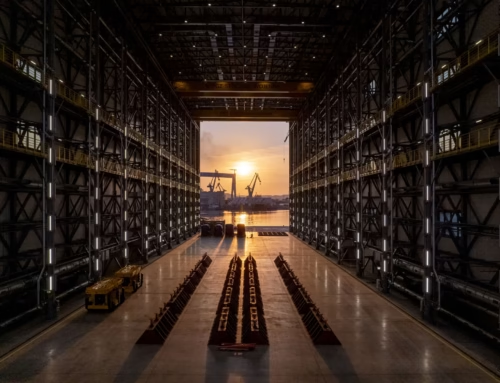PA
Autor foto: CPF

Special Paper: Improving CEE Energy and Climate Resilience by Debunking Cost and Inconvenience Narratives
21 listopada, 2024


PA
Autor foto: CPF
Special Paper: Improving CEE Energy and Climate Resilience by Debunking Cost and Inconvenience Narratives
Autor: Petra Augustinova
Opublikowano: 21 listopada, 2024
Pulaski Policy Paper, no. 17, 22th of November 2024
Central and Eastern Europe holds the key to unlocking Europe’s green energy future, but persistent myths of high costs and inconvenience are holding back transformative progress. It’s time to reframe the narrative and embrace the economic and environmental benefits of renewables.
Most Central and Eastern European (CEE) countries have not fully embraced the potential of renewable energy sources (RES), primarily due to a mix of public administration challenges, constrained budgets, limited financing options, and pressing legacy issues they deem more urgent. Many of these countries have relied heavily on nuclear energy and are wary of prioritizing regional solidarity over national interests. As a result, a rapid green transition is often seen by CEE leaders and policymakers as both too costly and inconvenient at present.
This paper addresses the two prevailing narratives of high cost and inconvenience, which hinder the full utilization of RES in the region. It outlines the necessary costs involved, which, in the long run, are highly likely to be outweighed by substantial benefits. These include lower retail power prices, increased energy exports, high returns on RES investments, significant EU financial support for RES, reduced fossil fuel import bills (especially from Russia), lower agricultural subsidies, a healthier, economically active population, the creation of new future-proof jobs and industries, and overall economic growth.
Over the next five years, the EU is committed to its new green growth strategy and its goals for 2030 and 2050. Brussels recognizes that achieving a net-zero future is not possible without a significant increase in renewable energy. However, without the active involvement and commitment of CEE countries, the EU will not reach its target of 42.5%, and ideally 45%, renewable energy in total energy consumption by 2030. Given the economic advantages of RES, it is in the best interest of CEE countries to align with Brussels’ vision and contribute to the green transition.
In conclusion, this paper suggests three immediate policy actions that CEE governments can take to advance their green transition and secure future economic growth:
- Set ambitious RES national targets as a prerequisite for achieving better outcomes and fostering innovative solutions, which are integral to the region’s sustainable energy transition.
- Reassess current priorities, considering the economic benefits, opportunities, and implications of fully utilizing RES. This should include leading a national discussion on the cost-benefit analysis of RES, ultimately resulting in more strategic alignment and planning.
- Build trust through open, proactive communication with EU partners in Brussels, ensuring that support is aligned with the realities on the ground in CEE countries.
Author: Petra Augustinova, Finalist of the Empowering Young Women Experts in Regional Security and Foreign Policy Fellowship
Petra served as Economic Specialist at the U.S. Embassy in Bratislava for almost four years, covering a wide portfolio of topics including energy, environment, science, technology and health. She has over ten years of professional experience in international relations, including research and analysis, publishing, business management and development, and consulting. She holds two master degrees in European studies and in economic diplomacy. Her research interests focus on cross-sectoral issues of the day, changing political realities and conflicts.


Views and opinions expressed are however those of the author only and do not necessarily reflect those of the European Union or the European Education and Culture Executive Agency. Neither the European Union nor the granting authority can be held responsible for them.






